
RESEARCH ON CHEMICAL INTERMEDIATES
Scope & Guideline
Fostering Collaboration in Chemical Innovations
Introduction
Aims and Scopes
- Catalytic Synthesis and Reaction Mechanisms:
The journal emphasizes research on various catalytic methods for the synthesis of chemical intermediates, including novel catalysts and their mechanistic insights. - Green Chemistry and Sustainable Processes:
A consistent focus on environmentally friendly synthesis methods and the utilization of renewable resources to minimize environmental impact. - Material Science and Nanotechnology:
Research on the development and application of nanomaterials and composites for enhanced catalytic performance and other chemical applications. - Photocatalysis and Environmental Remediation:
Studies exploring the use of photocatalytic processes for the degradation of pollutants and the development of advanced materials for environmental cleanup. - Biomimetic and Biogenic Synthesis:
Investigations into the use of biological systems or natural extracts for the synthesis of chemical intermediates and nanoparticles.
Trending and Emerging
- Nanocatalysts and Hybrid Materials:
Recent publications highlight a trend towards the development of nanocatalysts and hybrid materials that combine various functionalities to improve catalytic efficiency and selectivity. - Green and Biogenic Synthesis:
There is a growing emphasis on green synthesis methods, particularly those utilizing plant extracts or biogenic processes to create nanoparticles and other chemical intermediates. - Photocatalytic Applications:
Research focusing on photocatalytic materials for environmental remediation and energy conversion is on the rise, reflecting a broader interest in sustainable energy solutions. - Multicomponent Reactions (MCRs):
The use of multicomponent reactions in the synthesis of complex molecules is gaining popularity, allowing for more efficient and atom-economical synthetic routes. - Utilization of Waste Materials:
Emerging studies are increasingly focusing on the use of waste materials as catalysts or feedstocks, aligning with sustainability goals in chemical production.
Declining or Waning
- Traditional Organic Synthesis Methods:
There seems to be a waning interest in classical organic synthesis techniques as researchers increasingly explore more sustainable and innovative methods. - Inorganic Catalysts without Support Materials:
Research on purely inorganic catalysts without any support appears to be decreasing, possibly due to a growing preference for supported and hybrid catalysts that offer better performance. - Single-Metal Catalysis:
The focus on single-metal catalysts is diminishing in favor of bimetallic or hybrid catalysts that enhance catalytic activity and selectivity. - Non-Photocatalytic Environmental Treatments:
There is a noticeable reduction in studies focused solely on traditional methods of environmental treatment that do not leverage photocatalytic or advanced oxidation processes.
Similar Journals

DOKLADY PHYSICAL CHEMISTRY
Illuminating Insights in the World of Physical ChemistryDOKLADY PHYSICAL CHEMISTRY is a prominent peer-reviewed journal published by MAIK NAUKA/INTERPERIODICA/SPRINGER, focusing on advancements and research in the field of Physical and Theoretical Chemistry. With the ISSN 0012-5016 and E-ISSN 1608-3121, this journal serves as a vital platform for researchers and practitioners to disseminate their findings and insights from 1996 to the present. Despite its current Q4 ranking in the 2023 category of Physical and Theoretical Chemistry, the journal has shown significant potential for visibility and engagement within the academic community, ranking #149 out of 189 in its respective field according to Scopus metrics, highlighting its dedicated readership. While the journal is not open access, it remains an essential resource for those seeking in-depth research articles, reviews, and commentary within this dynamic discipline. As the field continues to evolve, DOKLADY PHYSICAL CHEMISTRY plays a crucial role in fostering scientific dialogue and collaboration among researchers, professionals, and students worldwide.

Chemical Methodologies
Advancing Chemistry Through Innovative MethodologiesWelcome to Chemical Methodologies, a premier journal published by SAMI PUBLISHING CO-SPC, dedicated to advancing the field of chemistry through innovative research and methodologies. With an ISSN of 2645-7776 and an E-ISSN of 2588-4344, this journal provides a vital platform for researchers and scholars to share their findings in areas encompassing physical, theoretical, and organic chemistry. Despite its initial HIndex and quartile rankings still being established, the journal's evolving impact within the academic landscape is underscored by its Scopus Ranks, which place it in the 35th percentile for physical and theoretical chemistry and the 33rd percentile for organic chemistry. Since its inception in 2022, and continuing through 2024, Chemical Methodologies aims to foster collaboration and knowledge dissemination among academics and practitioners alike, bridging theoretical concepts and practical applications. This open-access platform enhances accessibility for researchers and students worldwide, ensuring that groundbreaking contributions to chemical science reach a broad audience.
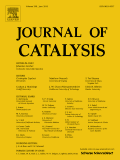
JOURNAL OF CATALYSIS
Catalyzing Knowledge for a Sustainable FutureJOURNAL OF CATALYSIS, published by Academic Press Inc, Elsevier Science, is a premier peer-reviewed journal that has been at the forefront of research in catalysis since its inception in 1962. With an impressive impact factor and ranking in the top quartiles of both catalysis and physical and theoretical chemistry, the journal is highly regarded, currently holding the distinction of Q1 in both fields. The journal serves as a critical platform for disseminating groundbreaking research, innovative methodologies, and theoretical advancements, making it essential reading for researchers, professionals, and students alike. Although it does not operate under an open-access model, its robust content is accessible through institutional subscriptions, ensuring that significant findings in catalysis and related fields reach a wide audience. With convergence years extending to 2024, JOURNAL OF CATALYSIS continues to shape the discourse in catalysis and chemical engineering, encouraging scholarly exchange and collaboration worldwide.
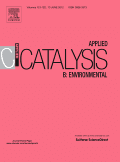
Applied Catalysis B-Environment and Energy
Driving innovation at the intersection of catalysis and environmental science.Applied Catalysis B-Environment and Energy, published by Elsevier, is a leading journal in the fields of catalysis, environmental science, and process chemistry, with an impressive impact factor that reflects its significance in advancing research and innovation. Established in 1992, this esteemed journal has earned a prestigious status as evidenced by its 2023 category quartiles—ranking in the Q1 category for Catalysis, Environmental Science, and Process Chemistry and Technology. With consistently high rankings in the Scopus database, it holds a remarkable position as #1 in General Environmental Science and #2 in both Process Chemistry and Catalysis, showcasing its profound impact on the respective fields. The journal’s scope encompasses both theoretical and practical research, targeting the pivotal developments in catalysis that promote sustainable practices and energy efficiency. Researchers, professionals, and students alike will find invaluable insights and cutting-edge studies published within its pages, making it an essential resource for those invested in pioneering advancements for a greener, more energy-efficient future.

CATALYSIS SURVEYS FROM ASIA
Empowering Catalysis Research Through Open Access CollaborationCATALYSIS SURVEYS FROM ASIA, published by Springer/Plenum Publishers, is a vital resource in the ever-evolving field of catalysis and chemistry. With a dedication to publishing innovative research and reviews from 2002 to 2024, this journal serves as a platform for the dissemination of significant findings that enhance our understanding of catalytic processes and their applications. Although its current impact factor is not explicitly listed, the journal holds a commendable Q3 ranking in Catalysis and Q2 ranking in Miscellaneous Chemistry within the prestigious Scopus database, indicating its relevance and quality among its peers. Open access options ensure that a broader audience can benefit from the research published, fostering collaboration and advancement in the field. By bridging the gaps between academic research and practical applications, CATALYSIS SURVEYS FROM ASIA is indispensable for researchers, professionals, and students committed to pushing the boundaries of catalytic science and technology.
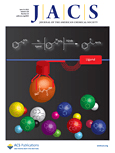
Journal of the American Chemical Society
Catalyzing Innovation in Chemical ScienceJournal of the American Chemical Society (JACS), published by the American Chemical Society, stands as a pivotal publication in the field of chemistry, facilitating the dissemination of significant research findings since its inception in 1879. With an impressive impact factor and esteemed rankings placing it in the Q1 quartile across various categories—including Biochemistry, Catalysis, and Colloid and Surface Chemistry—JACS continues to serve as a vital resource for scientists, professionals, and students alike. Researchers choose JACS for its rigorous peer-review process, ensuring high-quality content that shapes the landscape of modern chemistry. The journal's extensive scope encompasses pivotal advancements and innovative methodologies, reflecting the evolving dynamics of chemical research. With access options being traditional subscription-based, it remains crucial for institutions and individuals to engage with its latest issues to stay at the forefront of chemical science advancement.

Reaction Kinetics Mechanisms and Catalysis
Exploring the Frontiers of Catalysis and KineticsReaction Kinetics Mechanisms and Catalysis is an esteemed academic journal published by SPRINGER, specializing in the fields of catalysis and physical and theoretical chemistry. With ISSN 1878-5190 and E-ISSN 1878-5204, this journal serves as a crucial platform for researchers and professionals to disseminate and engage with cutting-edge findings in reaction kinetics, catalytic processes, and mechanistic insights. Operating under an open access model, the journal ensures broad accessibility to its content, enhancing its impact within the scientific community. As of 2023, it is positioned in the Q4 category in catalysis and Q3 in physical and theoretical chemistry, reflecting its growing influence, yet also its potential for further advancement. Aiming to foster collaborations and innovations, Reaction Kinetics Mechanisms and Catalysis is poised to continue shaping the discourse in its field, making it an essential read for researchers, students, and industry professionals alike.
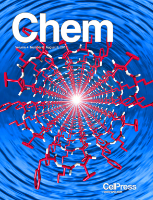
Chem
Empowering Global Access to Chemical KnowledgeChem, published by CELL PRESS, is a renowned academic journal that has rapidly established itself as a leading platform for cutting-edge research in diverse areas such as biochemistry, chemical engineering, materials chemistry, and environmental chemistry. Released under the ISSN 2451-9294, this esteemed journal has achieved an impressive Q1 category ranking across multiple disciplines in 2023, highlighting its significant impact and prominence within the academic community. With a strong focus on innovative studies and interdisciplinary approaches, Chem fosters a vibrant dialogue among researchers, professionals, and students, making it an indispensable resource for those seeking to advance their knowledge and contribute to the evolving field of chemistry. As an open access journal, it aims to democratize knowledge, ensuring that critical research is accessible to a global audience. With its headquarters based in Cambridge, MA, it continues to lead the charge in the dissemination of pivotal findings that shape our understanding of chemical sciences.
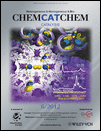
ChemCatChem
Transforming Ideas into Breakthroughs in Chemistry.ChemCatChem is a leading international journal published by WILEY-V C H VERLAG GMBH that has been making significant contributions to the fields of catalysis, inorganic and organic chemistry, as well as physical and theoretical chemistry since its inception in 2009. With an established reputation for excellence, this journal holds commendable rankings in various categories, including Q1 in Inorganic Chemistry and Q1 in Organic Chemistry, demonstrating its pivotal role in advancing scientific knowledge and innovation. Notably, it has achieved a high Scopus ranking, securing 10th place out of 79 in Inorganic Chemistry, among others, showcasing its influence and quality. Although open access options are not available, the journal offers cutting-edge research articles, reviews, and insights that are vital for researchers, professionals, and students aiming to stay at the forefront of chemical science. With its address rooted in Weinheim, Germany, and convergence projected to continue until 2024, ChemCatChem remains a dynamic platform for disseminating vital advancements within the chemical community.

Reactions
Elevating Chemistry Research for Tomorrow's ChallengesReactions is a dynamic open-access journal published by MDPI, dedicated to the advancement of research in the fields of Chemical Engineering and Chemistry. Launched in 2020, the journal aims to provide a platform for scientists and researchers to share their findings and innovations, facilitating the synthesis and dissemination of knowledge within the global academic community. With an impact factor that reflects its growing influence, Reactions ranks 47th in the Chemical Engineering category and 72nd in Chemistry on Scopus, placing it within the vibrant landscape of contemporary chemical research. Housed in the picturesque city of Basel, Switzerland, the journal is committed to open access, ensuring that its high-quality content is readily available to all. This commitment not only enhances visibility but also fosters collaboration among researchers, professionals, and students striving to push the boundaries of chemical sciences. As we look towards 2024 and beyond, Reactions continues to encourage submissions that explore groundbreaking methodologies, innovative applications, and transformative theoretical frameworks in chemistry and chemical engineering.